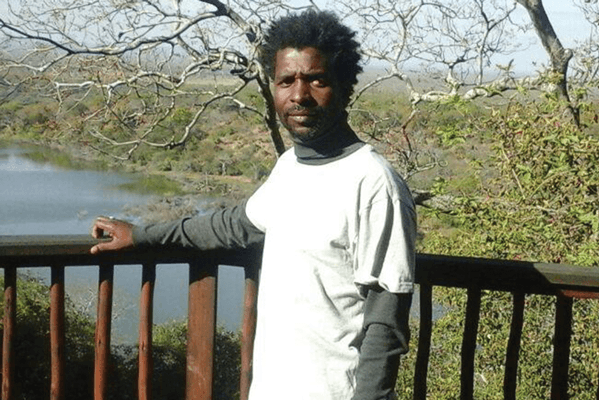
Guest Column: Paidamoyo Muzulu
DIFFERENTIATING Zanu PF and the MDC led by Nelson Chamisa is not an easy thing, particularly for people who are not swayed by political rhetoric, and rally optics, but those who slowly and methodically go through the two political parties’ policy documents.
The trend of the two parties converging ideologically is not new, but has been morphing over the last decade. For the MDC, the turning point was 2013, when it adopted the “Agenda for Real Transformation” (ART) policy document just before the dissolution of the inclusive government, where the party had tasted power as a junior partner in a coalition with Zanu PF post the Global Political Agreement midwifed by former South African President Thabo Mbeki. (See https://zim2013politricks.wordpress.com/2013/05/24/mdc-t-changing-colour/)
The MDC’s neo-liberal faction had won the internal battle and since then, has been consolidating power. The faction, like Zanu PF and in particular, Finance minister Mthuli Ncube, works with an eye to seek approval from the Brettonwoods institutions — the World Bank and the International Monetary Fund.
It came, therefore, as no surprise that the MDC’s prized possession, Harare City Council’s 2020 $4,6 billion budget was clothed in neoliberal euphemisms, and for many who may not be aware would conclude that it was prepared by Ncube’s minions at Treasury and a seamless continuation of austerity.
The MDC-dominated council presented a budget that quadrupled the cost of water, raised sewer charges three-fold and doubled rents for council property. It is pertinent to note that this was the clearest signal that water provision would be privatised and the poor have to start making plans to relocate from the capital.
The city has over the years started implementing the pre-paid water meter system and now seems it would be accelerated and many houses would now have to pay in advance for their water, just like electricity, even if the two commodities are never in constant and consistent supply.
The council also increased healthcare fees, particularly for delivering at the council clinics, with a caesarean operation tripling to $1 837.
- Chamisa under fire over US$120K donation
- Mavhunga puts DeMbare into Chibuku quarterfinals
- Pension funds bet on Cabora Bassa oilfields
- Councils defy govt fire tender directive
Keep Reading
It is noteworthy that the MDC, which presents itself as a social democratic party, had no coherent policy on funding council schools, creches, public transport and social housing in its budget. Failure to fund this is not an omission or oversight, but a clear indication of its neoliberal approach that private capital should solve these problems.
“This budget, which is guided by our strategic plan, also takes care of government’s intention as espoused in the Transitional Stabilisation Programme that is to achieve an upper middle-class income economy by 2030,” finance and development committee chairperson Luckson Mukunguma said.
This loaded statement shows a convergence of minds between Zanu PF’s policies and the opposition. Ncube gave the lead and the opposition is following, dumping its founding principles as a party spawned by labour, peasants and student organisations.
In reality, each household in the high-density suburbs is now expected to pay at least $250 monthly for water, sewage, refuse collection and public lighting. These rates are steep for the poor and working class, whose wages mostly hover around $1 000. They are also expected to pay electricity, commute to and from work, being charged exorbitant fares by the kombis that now ply the city routes.
While council could argue the economy is in a tailspin and there is no alternative except to hike rates for the poor, this is an argument that is both lame and weak when all things are considered. Harare is owed more than $1,2 billion and this is mostly by central government, churches, Zanu PF and residents in the north-eastern suburbs. The city is failing to collect this amount because it is afraid to upset Zanu PF and capital, in general.
Further, this is a city that has failed to produce audited financial statements for the year 2018 and most likely for 2019 after it dumped its billing system software supplier. The city, therefore, cannot access cheap funds for capital projects from raising municipal long-term bonds on international capital markets.
To make matters worse, Auditor-General Mildred Chiri, in her 2018 report, highlighted that the capital city did not have an asset register, meaning it does not know what it owns. At independence, the city had a large stock of commercial and residential properties that have either been stolen or remain unaccounted for. The properties on their own could rake in more than a quarter of the city’s budgetary needs.
It remains a mystery why the city is selling its prime real estate, owned through the now-defunct Rufaro Marketing, to private players, instead of developing it into shopping malls or even shells for informal sector traders to operate from?
Like Ncube, the MDC solution to all the city ills is privatisation, offer cost-recovery model services and be lenient on the rich, with the hope that economic prosperity will trickle down to the poor. How many palatial mansions are now in the city? Are they paying commensurate rates?
In other jurisdictions such as the neoliberal West, affluent suburbs are taxed highly to make sure they build modest houses and the remaining capital is ploughed into production. Why can’t the city put up tollgates and heavily levy all those luxurious vehicles like what happens in London?
The poor and working class are on their own after their 1999 class project was hijacked by neoliberals and it seems no one in the current set-up has the spine to change course. For now, the MDC can happily have tea with Ncube while at rallies they still pretend they are red.
Paidamoyo Muzulu is a journalist and writes here in his personal capacity. He can be contacted on [email protected]











